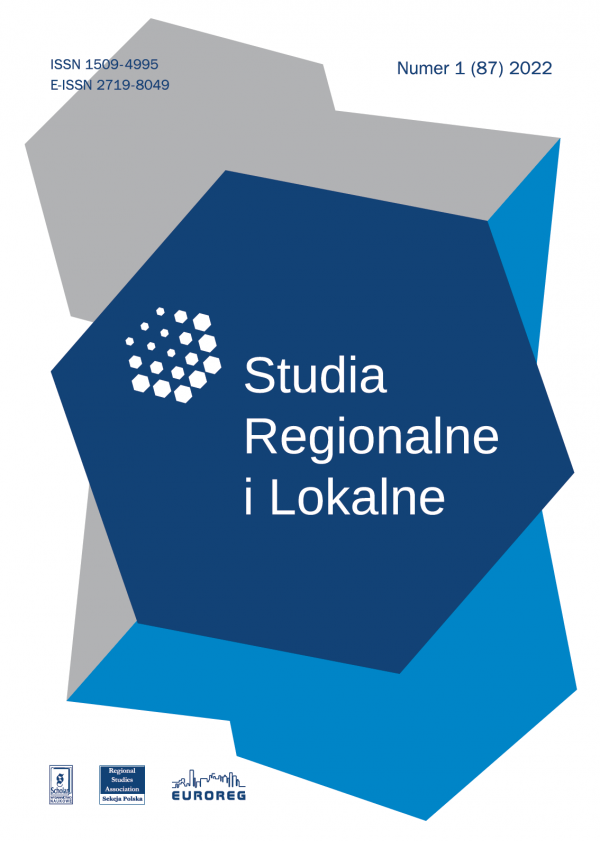Published in
1(87)2022

- Darina DvornichenkoAssessing the Correlation Between Women’s Civic Engagement and Elected Political Participation: A Case Study of Six Polish Cities[more]
- Borce Trenovski, Gunter Merdzan, Filip PeovskiMunicipal Revenue Determinants in the South-Eastern European Economy: Evidence from North Macedonia[more]
- Abdul Nadjib, Oemar Madri Bafadhal, Anang Dwi SantosoSocial Capital, Bureaucratic Neutrality, and Regional Head Election in Indonesia[more]
- Marcin WajdaThe Allocation for Regional Programmes – Analysis and Assessment of the Proposals Contained in the Draft of Partnership Agreement for the Implementation of the Cohesion Policy 2021–2027 in Poland[more]
- Maria Bednarek-SzczepańskaThe Power of Protest in the Game for Space: The Impact of a Local Community on Environmental Decisions for Animal Farms[more]
- Mariusz E. SokołowiczValuating the Ambiguous Heritage of Modernism in Cities Based on the Case of the Warsaw Ochota Train Station[more]
- Grzegorz GorzelakMarek Szymaniak, Zapaść. Reportaże z mniejszych miast, Wydawnictwo Czarne, Wołowiec 2021, 253 s.[more]


